- Observe meteorological phenomena (e.g. severe weather) with advanced observation techniques based on aircraft and vessel over observational gaps such as the upper atmosphere and seas and characterize them in order to improve their numerical predictability
- Evaluate and standardize meteorological observation techniques to help produce the high quality observation data, and develope advanced meteorological techniques
Observation Technology Research
- Development and evaluation of the meteorological observation techniques
- Application research through operation of KMA Standard Meteorological Observation Stations
- Pilot study on the state-of-the-art technologies of meteorological observation at the WMO Measurement Lead Centre (MLC)
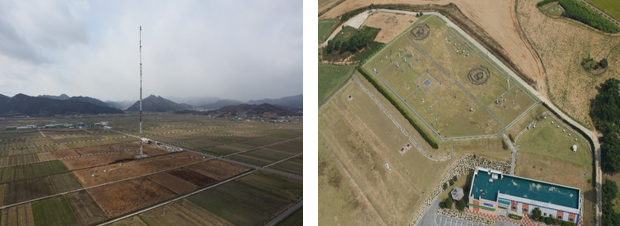 |
| <KMA Standard Meteorological Observation Stations (Boseong, Gochang)> |
Atmospheric Research Aircraft Operation Center
- Operation of KMA/NIMS Atmospheric Research Aircraft for measurement of meteorological/environmental phenomena and Cloud Physics & cloud seeding
- Research on characteristics of meteorological phenomena such as severe weather
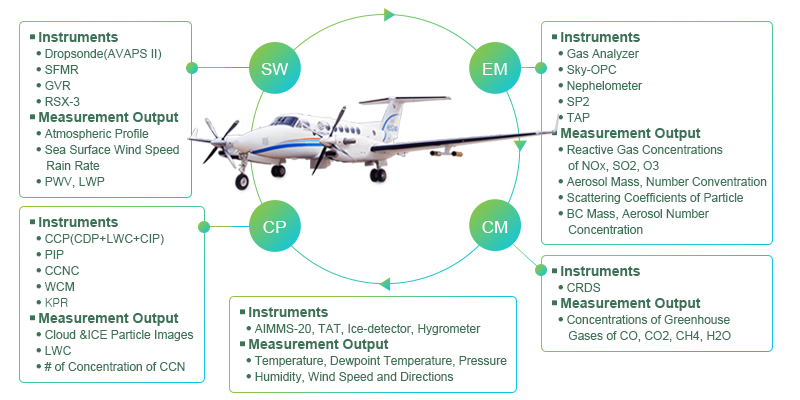
Weather Observation Vessel Operation Center
- Monitoring severe weather such as typhoon and supporting a special weather forecast by operating weather observation vessel
- Regular observation of sea water temperature and conductivity, analysis of sea conditions in the Yellow Sea
- Participate in global ocean observing program(Array for Real-time Geostrophic Oceanography:ARGO)
- Participate in joint severe weather observing programs such as Asian dust, rainfall, typhoons and heavy snow in the Yellow Sea, the South Sea and the East Sea
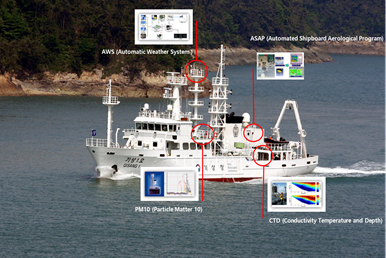 |
| <Weather Observation Vessel & Major Research Equipment> |
Marine Meteorology Observation Research
- Marine Meteorological Observation Technique Development
- Study on the Ocean Environment Changes around Korean Peninsula
- Yellow Sea Observation Network and Temperature and Salinity Data Production
- International ARGO Program Participation and Regional Data Assembling Center Operation
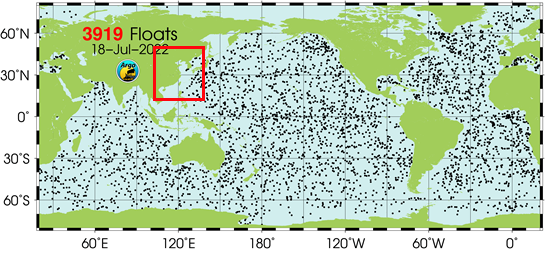 |
| <Status of Argo float Observation Network> |
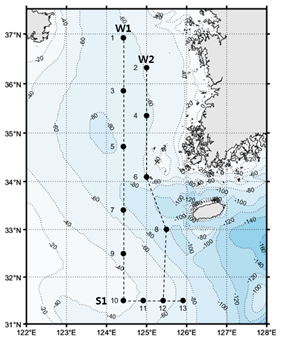 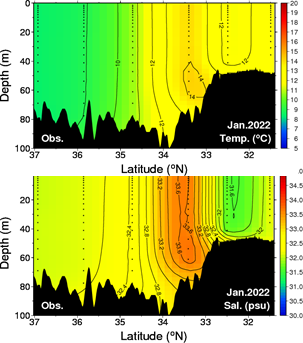 |
| <Yellow Sea Observation Stations and Temperature and Salinity Example in line W1 on January, 2022> |

